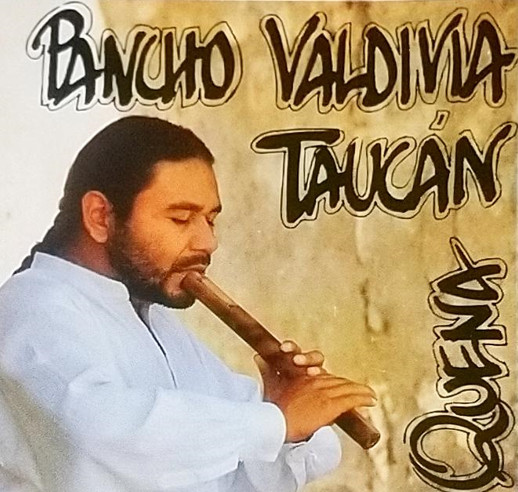Pancho Valdivia Taucán
Настоящее имя: Pancho Valdivia Taucán
Об исполнителе:
Pancho Valdivia Taucán is one of the names of the diaspora of Chileans who have carried out their work in Latin American fusion and roots both in Chile and in other countries. Since his beginnings in Chile he has played and recorded albums as a soloist and also with various groups in Ecuador, France, Switzerland and Argentina. His creation and research work has earned the Regional Award for Artistic Creation (CNCA, 2013) and the Contribution to the Development of Art and Indigenous Culture Award (Conadi). Born in Illapel, Chile, Valdivia began in festivals and folkloric gatherings and debuted on record in 1978 with Altiplano, his first group. He traveled and played in Ecuador, Bolivia, and Peru, and after a first visit to Europe in 1982, upon his return, he joined the Huancara group with Argentine folk roots, which began that year. With him he worked alongside Ariel Ramírez in presentations of his classic Creole Mass throughout Latin America, the US and Europe. In Argentina he also recorded with the author César Isella (album Con todos , 1984). Between 1987 and 1994 he taught Andean folklore as part of the Ethnomusicology Workshops in Geneva, Switzerland, embodied in three albums recorded between 1993 and 1995, and in that country he also recorded his album Quena (1990). In Chile, Valdivia has participated in the albums The song of the white oak (2001), by Lincoyán Berríos and Alejandro Cabrera, and Poesía (2002), by Patricia May together with Roberto Bravo and Enrique Luco, and his discography is swelled by the various groups you have joined. With Chaya he recorded Chaya (1979) and with the Héctor Pavez Group he recorded Chile lives in exile (1979), both in Paris. With Markasata he made Kallpa and Markasata (1984), both in Buenos Aires, where he also participated in Huancara's Towards the Latin American Root (1984). Together with the Franco-Swiss group Manco Capac he recorded Ritual (1990) in Switzerland, and in 1995, back in Chile, he created the cultural space Taller Taucán in Cuz-cuz, a town near his native Illapel, under which he released the album Aruntañany - We exist (2001). Since then he has collaborated with Chilean groups such as Fusion Andina and the porteños Transiente ., with whom he presented an "Andean Mass" in the Fourth Region, together with the choir of the Catholic University of Valparaíso. Part of his work and his philosophy of persistence in it can be seen in the documentary Taucán (2014), by director Sergio Olivares.
